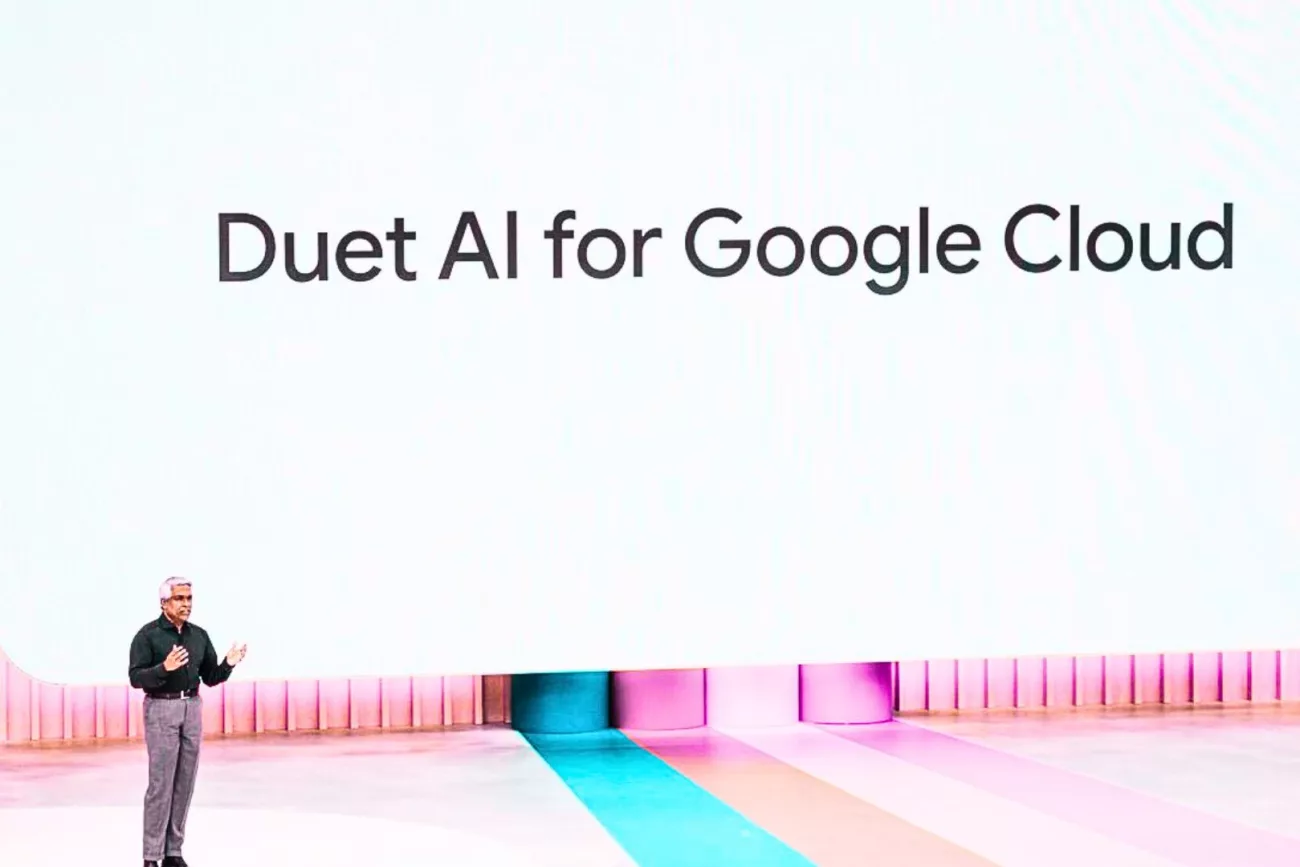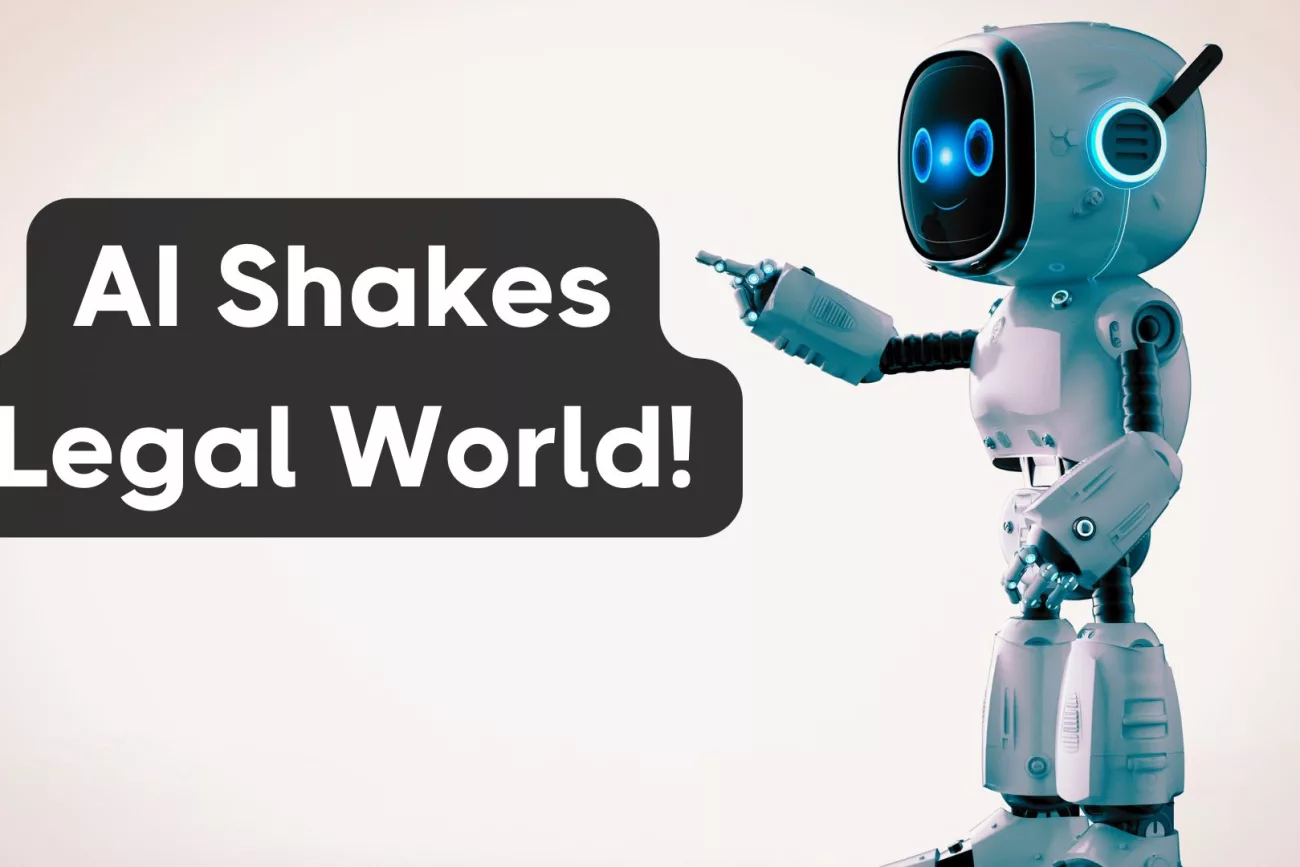
Key Points:
- The article explores the controversial use of AI in the legal field, particularly its impact on the lawyer-client relationship and its implications for empathy and efficiency.
- It addresses potential ethical dilemmas, such as data privacy and accountability for incorrect advice, proposing that the pursuit of efficiency may compromise justice.
- The article delves into the future of AI in law, reflecting on expert forecasts, and suggesting that the rise of AI could result in the ‘dehumanization’ of the justice system.
- The article concludes by inviting readers to share their views on this contentious issue, posing the question of whether we are sacrificing trust for technological advancement.
Introduction
Could a computer algorithm be your next lawyer? A shocking proposition, but in today’s rapidly evolving technological landscape, not as far-fetched as it might sound. Artificial Intelligence (AI) is increasingly penetrating every facet of our lives, and the legal profession is not immune to its touch. Some hail this as the dawn of a new era of efficiency, but are we overlooking the cost? Could we be on the brink of upending the time-honored lawyer-client relationship, replacing the hallowed halls of justice with cold, impersonal lines of code?
In this article, we’ll delve into the heated debate surrounding automated legal advice. We’ll examine what it is, how it works, and the potential impact it may have on the very foundation of our legal system. We’ll explore the ethical questions it raises, probe the implications for our society, and ponder the future of law in an increasingly digital world.
We encourage you to journey with us through this controversial landscape. But before we dive in, what are your initial thoughts on this? Could you entrust your most sensitive legal matters to a machine? Or do you believe the human element in law is irreplaceable? Comment below with your predictions and let’s kickstart this conversation. #AILawDebate🤖⚖️👇
The Dawn of Digital Law: A Revolution or a Risk? 🌅⚠️
The Advent of Automated Legal Advice
Welcome to the era of Digital Law, where your trusty lawyer might just be an Artificial Intelligence algorithm. Yes, you read that right. AI has now infiltrated the esteemed legal profession. Automated legal advice is not a dystopian concept of the future, but a stark reality of our present.
Imagine this: A world where your legal queries are answered not by a seasoned attorney, but by a machine learning model, trained on thousands of legal cases, statutes, and precedents. The algorithm doesn’t sleep, doesn’t take lunch breaks, and certainly doesn’t charge by the hour. Alluring, isn’t it? Or is it a harbinger of a perilous legal landscape?
AI in the Courtroom: Existing Tools
The realm of legal AI tools is already burgeoning. Consider the likes of ROSS Intelligence, capable of researching legal issues in seconds, or Legal Robot, a tool that translates legalese into plain English. And then there’s DoNotPay, a chatbot that’s been dubbed the “world’s first robot lawyer,” helping users contest parking tickets and even claim asylum!
Weighing the Pros and Cons: A Legal Utopia or Dystopia?
With these AI tools comes a tantalizing promise of efficiency and accessibility. Proponents of digital law argue that:
- Legal advice could become more affordable and accessible to the masses.
- AI could handle mundane tasks, freeing up lawyers for more complex cases.
- The potential for round-the-clock availability.
However, this brave new world is not without its pitfalls. Critics warn that:
- The lack of human touch could compromise the attorney-client relationship.
- AI algorithms, however advanced, could still make errors with severe legal consequences.
- There is a potential for misuse and data privacy concerns.
So, is automated legal advice a revolutionary leap forward or a risky gamble? The jury is still out on this one. Comment your thoughts below and let’s continue this heated debate. #DigitalLawRevolution⚖️💻🔥
The Impact on the Lawyer-Client Relationship: Empathy vs Efficiency 🤝🔄
The Irreplaceable Human Touch: AI’s Empathy Deficit
Consider the following: You’re sitting in a lawyer’s office, wrestling with a complex and emotionally charged legal situation. You’re not just seeking legal advice. You’re looking for an empathetic ear, someone who understands the human story behind the legal complexities. Now, imagine replacing that lawyer with an algorithm. Can a machine really provide the emotional understanding and moral support that a human lawyer can?
AI, despite its many advancements, is fundamentally incapable of empathy, a core tenet of the lawyer-client relationship. The “emotional intelligence” of AI is, at best, simulated, derived from patterns and probabilities, not genuine understanding. While AI might ace the Turing test, it fails the empathy test. It can mimic human interaction but can never truly comprehend human emotions or respond to them appropriately.
The Devil’s in the Details: AI and Legal Nuance
Let’s delve into a hypothetical yet plausible scenario. Consider a complex family law case involving child custody, where the legal situation is deeply entwined with emotional and interpersonal factors. Can an AI, however sophisticated, comprehend the intricacies of the human relationships involved, and provide nuanced advice?
Our current AI technology lacks the ability to perceive the subtleties of such cases. It cannot understand unspoken implications, body language, or emotional subtexts, which often play a crucial role in legal decisions. AI, bound by its programming, can only operate within the confines of explicit rules and defined scenarios, making it ill-equipped to handle complex, ambiguous, and deeply human legal situations.
Judgement Day: The Human Element in Legal Decision-making
The legal profession isn’t just about knowing the law—it’s about interpreting it. It’s about applying human judgement to navigate the gray areas of legal rules and principles. Can we entrust this critical task to machines?
Data supports the enduring importance of human judgement in the legal profession. According to a study by McKinsey, while 23% of a lawyer’s job can be automated, tasks requiring judgement and experience have a much lower automation potential. An AI, for instance, would find it challenging to advise a client on a strategic legal move or to persuade a jury in a courtroom—tasks that require not just legal knowledge, but human skills like persuasion, creativity, and emotional intelligence.
Call to Action: Your Verdict?
As we grapple with the rise of AI in law, we must ask ourselves: Are we willing to trade empathy for efficiency? Are we prepared to entrust our legal woes to machines? How do we navigate the tension between the promise of AI and the value of the human touch in law?
This debate isn’t just for legal professionals—it affects us all. Have you ever sought legal advice from an AI? What was your experience like? Share your stories in the comments below. Let’s bring this debate out of the courtroom and into the public arena. Remember, your voice matters in shaping the future of law. #AIvsEmpathy🤖💔👨⚖️
The Ethical Dilemma: Whose Interests Are We Serving? 🧭🤷♂️
The Data Privacy Paradox: A Breach in the Name of Efficiency?
As we integrate AI into the legal domain, we risk exposing our most sensitive information to unprecedented threats. Your legal matters, personal circumstances, and confidential information are no longer confined to the secure confines of a lawyer’s office. They are stored in databases, processed by algorithms, and potentially accessible by unknown entities. Can we trust AI with our secrets?
While AI platforms promise robust data security measures, they are not invincible. Data breaches and cyberattacks are real threats in the digital age. The question we must ask is this: In our pursuit of efficiency, are we compromising our right to privacy?
The Responsibility Riddle: Who Bears the Brunt of AI’s Mistakes?
Now, imagine that your AI legal advisor provides erroneous advice, leading to significant losses. Who is to blame? The developers who programmed the AI? The law firm that implemented it? Or the machine itself?
AI in law presents a new dimension to the concept of legal malpractice. If AI makes a mistake, pinpointing responsibility becomes a complex task. As of now, there is no clear legal framework governing the accountability of AI errors in the legal domain. We are venturing into uncharted territory, a murky legal landscape fraught with ambiguities.
Expert Voices: A Call for Caution
Renowned legal ethicist, Professor David Luban, expresses grave concerns about the AI takeover in law. He warns, “We are crossing a dangerous threshold. The law is a human enterprise. Automating it is tantamount to erasing its human core. And that, I fear, may be a grave mistake.” Luban’s cautionary words serve as a potent reminder of the human essence of law that we risk losing in the face of AI’s relentless march.
The Controversial Verdict: Efficiency at the Expense of Justice?
Here’s a provocative proposition: In our relentless quest for efficiency, are we undermining the very essence of justice? Are we compromising on the human touch, the personal engagement, and the empathetic understanding that form the backbone of the justice system?
We need to seriously consider this: Justice isn’t an assembly line operation. It isn’t about churning out legal solutions at record speed. It’s about ensuring fairness, upholding rights, and serving the human spirit. As we stand at the cusp of the AI revolution in law, we need to ask ourselves—Are we serving efficiency at the cost of justice?
Your Turn: The Jury’s Out
This is a debate that needs your voice. Are we ready to navigate the ethical minefield that AI presents in law? Are we prepared to trade privacy for efficiency, to grapple with the responsibility dilemmas that AI brings, to risk the human essence of law for faster legal solutions? Share your thoughts in the comments below. Let’s not allow our pursuit of efficiency to blind us to the ethical questions that AI in law raises. #AIvsEthics🤖⚖️
Looking Ahead: A Tech-Driven Legal Landscape or a Technological Misstep? 🗺️🚀
The Future of Law: A Machine-Led Legal Order?
As we delve deeper into the 21st century, AI is poised to transform the legal landscape. Legal research, contract analysis, and even dispute resolution could be automated, promising an efficient, cost-effective legal system. However, as we navigate this uncharted terrain, we must ask ourselves: At what cost does this efficiency come?
AI’s potential in law is undeniable. Yet, it’s essential to remember that it is just a tool, devoid of human intuition, empathy, and moral judgment. As we envision a future dominated by AI, we must grapple with the implications of entrusting our justice system to machines.
Expert Predictions: An AI Utopia or Dystopia?
Prominent legal technologist, Richard Susskind, predicts a future where AI is integral to law, stating, “In the next few decades, AI will become a ubiquitous part of legal services.” However, he also voices a caveat: “We need to ensure that this transformation benefits everyone and doesn’t compromise the values that underpin our justice system.”
On the other hand, critics argue that an AI-driven legal system could dehumanize justice, strip it of its emotional depth, and reduce it to a mechanical exercise. The question is, are we ready for such a radical shift?
The Controversial Question: A Dehumanized Justice System?
Here’s a controversial proposition: The rise of AI could lead to a ‘dehumanization’ of the justice system. Are we ready to accept a sterile, mechanical legal order, devoid of human empathy and understanding? Are we willing to navigate the complexities of law through the cold precision of algorithms, with no room for human discretion?
In our rush to embrace AI, we risk losing sight of the essence of law: its human element. The law is not just about rules and regulations—it’s about people, their stories, their struggles, and their quest for justice. Can a machine truly understand that?
Your Verdict: Entrusting Your Legal Matters to a Machine?
As we stand on the precipice of this AI revolution in law, we need your voice. Do you feel comfortable entrusting your legal matters to a machine? Are you ready to navigate a justice system devoid of human touch?
The future of law is in our hands. We can embrace AI as a tool, but we must not let it replace the human element that is so intrinsic to our justice system. We must strike a balance—leveraging AI for efficiency, but not at the cost of our humanity.
Share your thoughts in the comments below. The future of our justice system depends on our collective voice. #AIinLaw🤖⚖️
Conclusion: A Call to Contemplate 🎯💡
Reflecting on AI: A Double-Edged Sword?
As we draw to a close on our journey through the implications of AI in law, we find ourselves in a whirlpool of excitement, skepticism, and trepidation. On one hand, AI promises to revolutionize the legal landscape by automating tedious tasks, enhancing efficiency, and reducing costs. On the other, it presents a plethora of ethical dilemmas and existential questions that challenge our core values and the very essence of the legal system.
Our exploration has confronted us with a stark reality: the potential dehumanization of the justice system, the ethical quagmire of data privacy and accountability, and the risk of undermining justice in the pursuit of efficiency.
Trading Trust for Tech?
The rise of AI in law is undeniably exciting but also deeply unsettling. Are we trading trust for tech in our pursuit of progress? Are we ready to compromise the human touch of a lawyer for the cold precision of an algorithm? These are questions we need to contemplate as we stand on the precipice of a new era in law.
Your Voice Matters
In this emerging AI-driven legal landscape, your voice matters more than ever. It’s imperative that we, as society, collectively grapple with these issues.
We encourage you to voice your opinions, express your concerns, and share your insights. The future of law is not just in the hands of technologists and legal professionals—it’s in ours, as the people who will be affected by these changes.
We are at a crucial crossroads, and the path we choose will have profound implications for our future. The question is, are we ready to face the profound implications and ethical challenges that AI brings to our legal system?
So, let’s discuss: Are we trading trust for tech in our pursuit of progress? Your thoughts could be the key to shaping a balanced, human-centric future for law. #AIinLaw🤖⚖️
Final Thoughts: Your Turn to Judge ⚖️🗣️
In the grand courtroom of public opinion, the gavel is now in your hand. This discourse surrounding AI in law—its opportunities, its risks, its ethical quandaries—is no longer confined to the realm of legal professionals and technologists. It’s a debate that beckons the voice of the masses, for the consequences will ripple out to impact us all.
Are we on the precipice of a legal revolution that liberates us from the shackles of bureaucracy, or are we sleepwalking into a dystopian future where the scales of justice are balanced by emotionless algorithms?
Does the rise of AI spell an end to the traditional lawyer-client relationship, marked by empathy, trust, and mutual understanding, or can we envisage a future where AI and humans collaborate, blending the best of technology with the innate strengths of humanity?
The debates are heated. The stakes are high. The future, uncertain. But one thing is clear: your voice matters. This isn’t just a conversation for today; it’s a dialogue for our future.
We encourage you to weigh in on this debate. Share your thoughts, fears, hopes, and experiences. Have you interacted with an AI lawyer? Would you trust one with your most sensitive legal matters? Is the legal profession losing its human touch, or is AI the unsung hero that will democratize legal services?
Share this article within your networks to fuel this important conversation. Use the hashtag #AILegalDebate and let’s get the dialogue going on LinkedIn. The future of law is not just in the hands of AI developers and legal professionals. It’s in all of our hands.
The question is, are we ready to make our judgement?
References:
- “Artificial Intelligence and Legal Disruption: A New Model for Analysis” from Harvard Journal of Law & Technology (https://jolt.law.harvard.edu/assets/articlePDFs/v31/Artificial-Intelligence-and-Legal-Disruption-A-New-Model-for-Analysis-Jeanne-E.-Mrazek.pdf)
- “AI predicts crime a week in advance with 90 per cent accuracy” from New Scientist (https://www.newscientist.com/article/2269080-ai-predicts-crime-a-week-in-advance-with-90-per-cent-accuracy/)
- “The 10 Most Engaging Topics on LinkedIn in 2021” from HubSpot (https://blog.hubspot.com/marketing/most-engaging-linkedin-content)
- “AI Automation Platforms Can Help, But Not Yet Fully Replace Lawyers” from Law.com (https://www.law.com/legaltechnews/2021/02/18/ai-automation-platforms-can-help-but-not-yet-fully-replace-lawyers/?slreturn=20220213152605)
- “European Commission Proposes New Regulations for AI” from the National Law Review (https://www.natlawreview.com/article/european-commission-proposes-new-regulations-ai)














